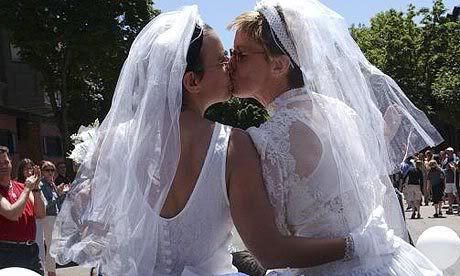March 24, 2009
Pope's visit to Cameroon raises questions about gay and lesbian rights
By Amnesty International
 Since the Holy See had said that it advocates against criminal penalties against homosexual persons, Amnesty International attempted to engage the Pope while on his first pilgrimage to Africa.
Since the Holy See had said that it advocates against criminal penalties against homosexual persons, Amnesty International attempted to engage the Pope while on his first pilgrimage to Africa. On his first trip to Africa last week, Pope Benedict XVI visits Cameroon, a country that criminalizes same-sex sexual relations.
Amnesty International has asked Pope Benedict during his visit, to urge the government of Cameroon to eradicate discrimination based on sexual orientation.
A senior Cameroonian Roman Catholic Church leader was reported by local media in December 2005, to have publicly denounced homosexuality. Before and since, many have been persecuted.
The Holy See said at a meeting of the UN General Assembly in December 2008 that it "continues to advocate that every sign of unjust discrimination towards homosexual persons should be avoided, and urges States to do away with criminal penalties against them."
"The Pope should take the important opportunity of this visit to Cameroon to make clear that the Holy See abhors any attacks or persecution of people based on their sexual orientation, and call on the government to decriminalize homosexuality," said Tawanda Hondora, Deputy Director of Amnesty International's Africa Programme.
Over the past three years, Amnesty International has documented the arrest and detention of several dozen young men and women, some of whom have been sentenced to prison terms and fines for allegedly engaging in consensual same-sex sexual relations.
In a typical case, two men were arrested on 16 August 2007 by gendarmes in Yaoundé, accused of engaging in same-sex sexual relations. The suspects were held at Nlongkak gendarmerie until 31 August 2007, when they were transferred to Kondengui prison.
While in custody, the detainees were subjected to anal examinations in an attempt by the authorities to establish if they had been engaged in sexual acts.
The men appeared in court on 23 November 2007 and pleaded not guilty to engaging in same-sex sexual relations. The court found them guilty of same-sex acts on 13 March 2008 and sentenced them to six months' imprisonment and a fine of 25,000 CFA Francs (approximately $US44). They were released soon after their trial because they had already spent more than six months in custody.
Twelve young women were permanently excluded from a college in Douala in March 2006, for their alleged same-sex sexual relations. Amnesty International is concerned that the girls were expelled solely because of their sexual orientation, depriving the girls of their right to education.
Amnesty International and other human rights organizations have made numerous appeals to the Cameroonian authorities, religious organizations and the media to uphold, respect and protect the human rights of all people in Cameroon, regardless of their sexual orientation.
On Thursday, Pope Benedict will be meeting with members of the Special Council for Africa of the Synod of Bishops at the Apostolic Nunciature of Yaoundé.
"Dozens of Cameroonian men and women have been detained solely for their actual or perceived engagement in consensual same-sex sexual relations – this is simply unacceptable. We hope that the Pope will make this clear to the government and the Church’s leaders and many followers in Cameroon during his visit," said Tawanda Hondora.

















